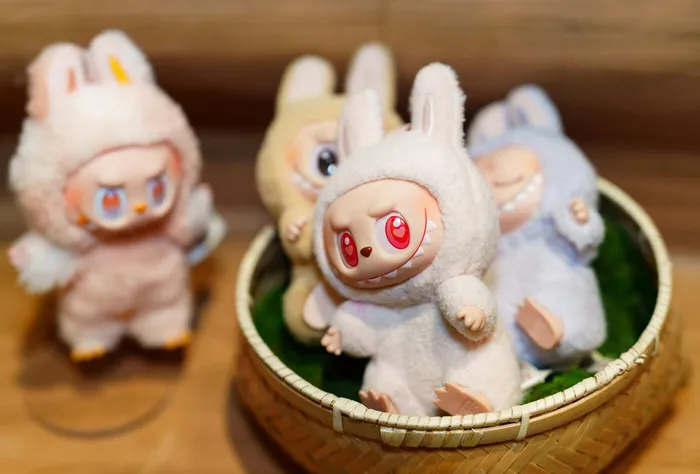Why are people baptising Labubu dolls? The controversy explained

The Labubu trend has gone viral as pet owners and collectors debate the dolls’ alleged demonic ties.
Image: Unsplash/Declan Sun
The Labubu trend has rapidly gone viral on social media, with pet owners and collectors reacting strongly to controversies surrounding the dolls' alleged demonic associations and safety concerns.
Labubu is a character from "The Monsters" series, created by Hong Kong-born artist Kasing Lung in 2015.
The character is a quirky, mischievous figure that has become a cultural icon, particularly in Asia, and now globally through its popular bag charms and toys.
Labubu dolls are known for their blind-box mystery packaging and sharp-toothed monster appearance. These dolls have driven massive consumer demand globally, often selling on secondary markets at inflated prices.
The trend of baptising Labubu dolls emerged after reports suggested that one or more dolls were modelled after Pazuzu, a demon from Mesopotamian mythology.
Some owners sought to “cleanse” their dolls, believing a baptism could neutralise any demonic influence.
In one Instagram video posted by radio hosts Brendan Jones and Amanda Keller, Keller commented, “People are baptising their Labubu dolls because it was reported that one of the dolls, or maybe all of them, was modelled after the demon Pazuzu, so they are getting them baptised to get rid of the demon.”
Social media users have reacted in varied ways. Some say they feel safer after"cleansing" their dolls, while critics argue the practice disrespects religious traditions.
One user wrote, “It’s a blessing, not a baptism. Objects can be blessed. For example, some people have their cars blessed for protection against accidents.”
Another commented, “This is so wrong and diabolical. Mocking the holy sacrament of baptism! Why play with such demonic dolls?”
Yet another wrote, “People gonna baptise their Labubus but not gonna baptise themselves... As far as I’m concerned, the Labubus ain’t the problem here.”
While some participants baptise their dolls, others have taken the trend further by destroying their Labubu collections. Videos circulating on social media show individuals burning the dolls, claiming this is a way to “keep demons out of the home”.
These actions often follow the same conspiracy theory linking the dolls to demonic forces.
The practice has sparked debate, with critics warning that such acts may be unsafe and promote unnecessary fear, while supporters argue it is a form of spiritual cleansing and personal reassurance.
As the popularity of Labubu dolls has surged, so has the market for counterfeit versions.
The UK's Chartered Trading Standards Institute (CTSI) has issued a warning about the dangers of counterfeit Labubu dolls, which are becoming increasingly popular among both children and adults due to viral trends and celebrity endorsements.
The fakes are unsafe, often poorly manufactured with detachable parts such as eyes, hands and feet that pose choking hazards to young children..
Additional risks include loose stitching, exposed stuffing and the potential presence of toxic substances like lead and harmful dyes.
Genuine Labubu dolls are identifiable by specific authenticity features, including a holographic sticker, QR code and UV stamp.
Consumers are advised to purchase only from trusted retailers to avoid safety risks and ensure authenticity.
Related Topics: